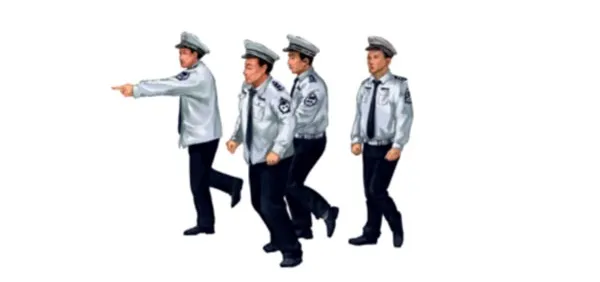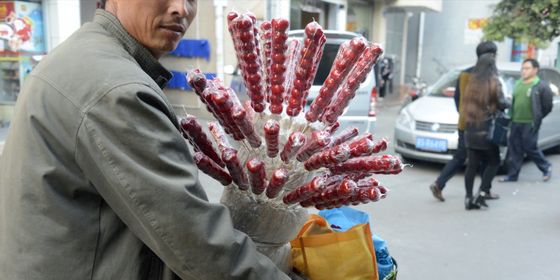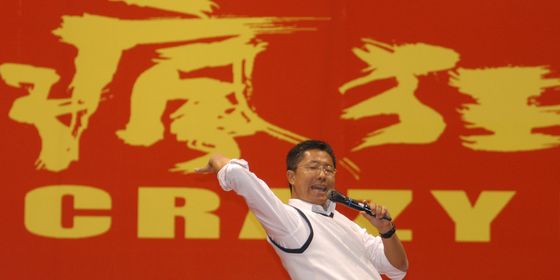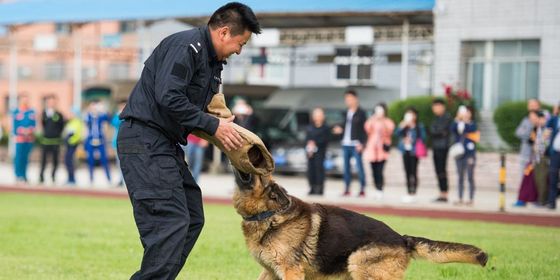The never-ending battle between the chengguan and street-vendors
“Citizens often complain that the chengguan (城管) beat and bully street vendors in a relationship that doesn’t veer to far from that of Tom and Jerry, but what are their real thoughts on the matter? Are they possibly hectored without good reason?…Street vendors’ illegal parking constantly occupies space in the street and blocks traffic. If we don’t take charge of these matters, the city’s traffic jams will become heavier, and it will be very inconvenient for passersby. Some street vendors ignore our warnings and, instead, insult and scold us; why don’t people notice this?” – Li Jun, a chengguan in Beijing
YANG XIAOJUN
Professor at the Chinese Academy of Governance
Today, if a city’s sanitation departments were not working and nobody was in charge of rubbish removal, it would smell rank and cause a public health problem. If nothing happens within a week and nobody takes responsibility for the matter, the city could be paralyzed and left unfi t for living. To take another example, if residents living in high-rise buildings change wall bearing structures without authorization or build houses randomly, this could defi nitely affect other people’s lives and pose a huge safety risk. Such disorderly conduct must be managed by a government division. There must be an administrative division responsible for demolishing illegal houses. And, that division is the urban management bureau (chengguan). Therefore, if anything, the function of the urban management will not disappear or become weaker, but actually be strengthened.
Urban management are the city’s administration and law enforcement primarily responsible for the administration of urban municipal roads, sanitation, parks and greenery, unlicensed vendors, illegal construction, construction waste, illegal parking, illegal dumping, and outdoor advertising. These organs of urban management and law enforcement should, relatively, concentrate on the exercising of administrative penalties upon aforementioned matters, such as municipal roads, sanitation, etc. Their power should not extend outside such spheres.
Before 1996, these matters were separately managed by seven or eight different governmental divisions. For example, an unlicensed street vendor was managed and brought to account by these different divisions at the same time, which was highly inefficient. In order to improve this situation, (administrative penalty) powers were concentrated on a single department. That was the origin of the city management teams (chengguan).
In addition, China’s future development path is one of urbanization, since there will be more people living and working in towns and cities rather than the vast rural areas, relevant problems, such as traffic jams, parking disputes and littering are all likely to rise. When most problems are concentrated in cities, the urban management’s function obviously needs to be strengthened.
In my opinion, there are three key points regarding the chengguan problems: firstly, the standard of urban management should be on the basis of law, keeping in line with cities’ actual development. It should be a reflection of the local government and the peoples’ common will, rather than an “official” standard imposed on the general public. Secondly, urban management should have a “soft” and “hard” approach. Coercive measures should only be used for illegal activities and violating people’s rights should be forbidden. This is the bottom line, otherwise we have a scenario that can only yield bitter fruit. Thirdly, an enforcement buffering area needs to be established.
“I hate the chengguan unconditionally. My roadside stall is just for raising my family. I do not have enough money to open a formal store and don’t have the = skills to find an office job. A roadside stall is my only choice. When the chengguan chase us, we have no choice but to run away. No business means no money. How can we survive in Beijing without money?” – Wang Dama, a street vendor near Sanlitun, Beijing
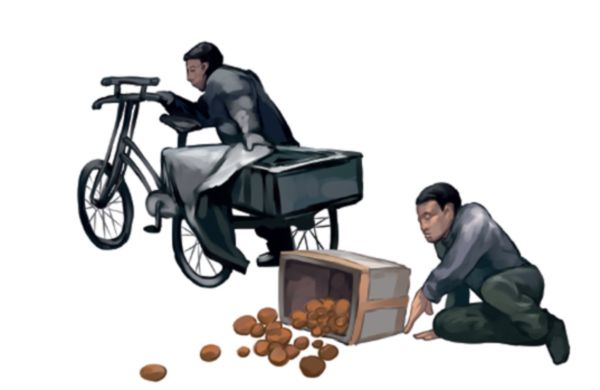
LIU ZHUMIN
Media commentator, managing editor of Chongqing Broadcast TV Newspaper
he scene is not strange in Chinese streets: a person with their cart flees with a group speedily chasing after them. This is not a gangland slaying, it’s simply the chengguan implementing their urban management power, plainly driving the street vendors away from the road. To be honest, the chengguan’s fame is not the good kind, so some cities want to change their manner of law enforcement to recover a good name, for example, by swearing an oath that states “we will not hit people”. However, this is a kind of performance; in truth, the violence “gene” is still there. The appearance of the chengguan is an inevitable result of China’s urban development. No one wants to live in chaotic city with garbage everywhere or every street occupied by unlicensed market stands. From this perspective, its existence is reasonable. The problem is that most of the chengguan’s personal qualities are low. A lot of negative and fiery social disturbances kick-off due to chengguan’s bloody hands, and they believe in “letting their fists speak”. In addition, urban management involves many facets.
The issue of chengguan concerns the government’s ideas, which need to be changed. In other words, how to satisfy government’s mianzi (face) and the street vendor’s duzi (stomachs). Most street vendors are farmers or laid-off workers with low incomes and a low level of education. Under significant employment pressure, they have to survive. Before the government finds a better way to help them, they must find their own way. They are reluctant to pay management fees as this will cause them to earn less. They are less concerned about whether the city is clean and orderly, and are more interested in raising their families.
The chengguan work for the government; many government achievements have been accomplished by this team, such as creating a clean and orderly city, construction, and demolition. The chengguan watch over people to ensure they do not litter everywhere and that they don’t block roads. Because of these political achievements, the chengguan have become a vanguard for the government. The government’s “political achievement anxiety” is directly reflected in the chengguan, who have to face the general public directly. If government officials are anxious on keeping their position, or “hat”, the chengguan are worried about how to keep their job or “bowl”, so the chengguan use violence. Plainly, the chengguan are the government’s scapegoat, undertaking all the activities that have negative consequences. If the government just cares about their face, many street vendors will go hungry.
Regarding the future of the chengguan, how do we solve these problems? In fact, it depends on the government’s determination and relies on how the government guides the unemployed into new livelihoods and how they can keep a balance between the mianzi and duzi. In my opinion, members of the chengguan who ignore the law and believe in “letting their fi sts speak” should be thrown off the team. The government should control the chengguan and their fists.





